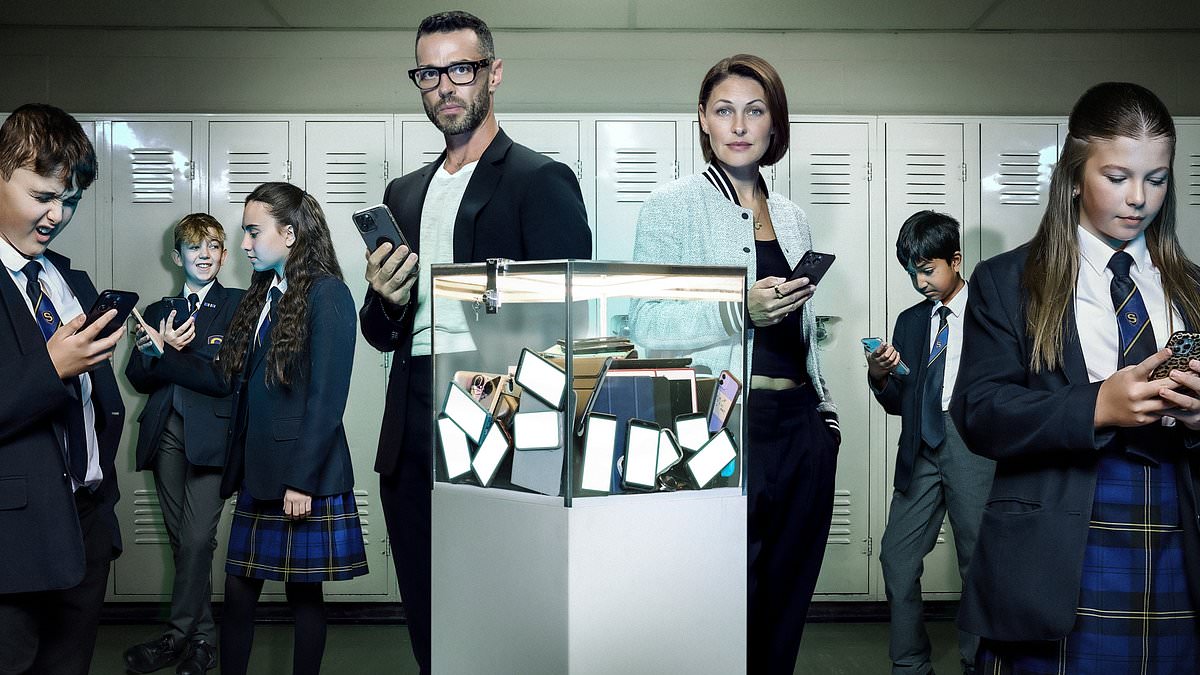Significant numbers of children spend more time on their mobile phones every day than they do being at school, new research has suggested.
Nearly a fifth of youngsters spend upwards of six hours on their smartphones each day, according to the study for a new TV show.
The findings were revealed in a survey for Channel 4’s two-part documentary series Swiped – The School that Banned Smartphones.
In the programme, as part of a social experiment, 26 schoolchildren, aged between 12 and 13, agreed to take part in a complete smartphone ban for 21 days.
These pupils reported they were getting an hour’s more sleep each night after they ditched their phones. They also reported feeling ‘substantially less anxious’.
As part of the programme, 1149 students at The Stanway School in Essex, where the show is filmed, were also surveyed about their phone habits.
They also provided researchers with actual screen time data from their phones, which showed that 17 per cent spent more than six hours each day on their device.
State-funded mainstream schools are expected to deliver at least 6.5 hours of time in school per day.
Nearly 40 per cent were found to be on their phones for four hours or more each day and 65 per cent were on them for two hours or more.
The figures aligned closely with self-reported estimates that children were asked to make about their daily usage, with 19 per cent thinking they were using them for more than six hours.
When analysis was directed specifically at social media use, it was found that 12 per cent of youngsters were spending over six hours on these types of platforms, such as TikTok and Snapchat.
Nearly half of the students spent two hours or more on social media.
In the programme, fronted by Matt and Emma Willis, the secretary of state for science, innovation and technology, Peter Kyle, says he is ‘open-minded’ to a ban on smartphones for under-14s.
But he added that he needed to see it was ‘the right tool in the right circumstance’, saying at the moment ‘I don’t think that that’s the right way forward’.
According to the research, which was overseen by academics from the University of York, children that took part in the smartphone ban reported a 17 per cent reduction in feelings linked to depression.
They also reported a 18 per cent reduction in feelings of anxiety, feeling ‘less upset and nervous’.
Survey results showed that 42 per cent had been contacted by a stranger on social media and 17 per cent had been ‘cyberbullied’, with 32 per cent encountering explicit content.
John Player, head of school, at The Stanway School, speaking at a recent launch event for the show said: ‘The amount of time that students are spending on their smartphones and their devices per day is, is quite frightening.
‘Because actually, when we invest so much time into the education of young people, just as much power is being had by that device in their pocket.
‘And then you see it the second the bell goes at the end of the day, how important that device is. It is their life. And for adults it’s slightly different.’
The survey also revealed that 38 per cent of the youngsters use their phones after 10pm and 53 per cent sleep with the devices next to their beds.
Student that took part in the phone ban were found to be falling asleep 20 minutes faster than before the ban and getting a ‘full hour of extra rest each night’.
On average across the phone ban group, children recorded a 30 minute increase in time spent engaged in physical activity.
Professor Lisa Henderson and Dr Emma Sullivan, Department of Psychology, University of York said: ‘The effects of smartphones on the likes of sleep are particularly notable, given sleep is critical to an array of developmental outcomes from how children perform at school to their mental and physical health.’
